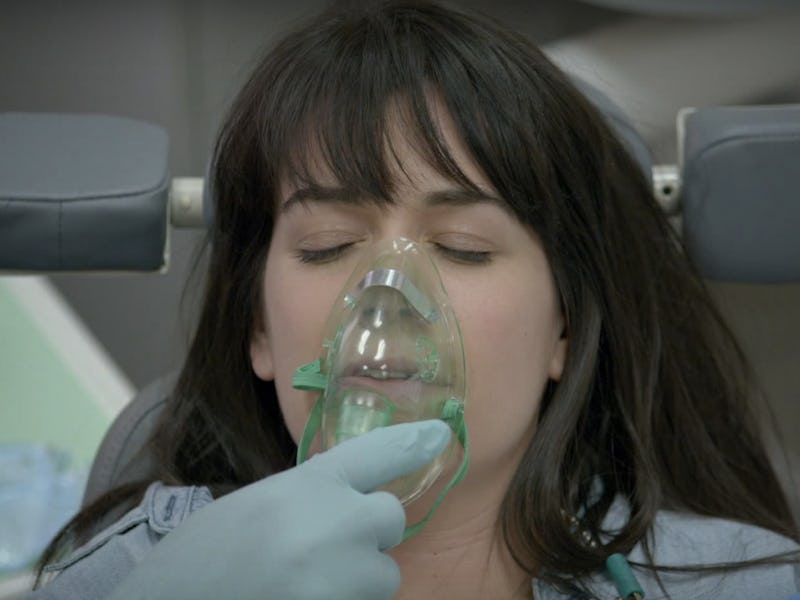Sucking in Laughing Gas Prevents Bad Movie Memories From Forming
Nitrous oxide prevents intrusive thoughts from bubbling up after watching violent scenes.

Visits to the dentist always suck, but the ones that suck the least are the ones where laughing gas lulls us into hilarious slumber. Nitrous oxide has long been used as a sedative for medical procedures, but new research in the journal Psychological Medicine shows that it could potentially be used to protect against psychological trauma, as well.
Using particularly murderous and rape-filled movie scenes to approximate mental trauma, the University College London researchers explored whether laughing gas might prevent bad memories for resurfacing later. Participants in their study were asked to breathe in a mixture of nitrous oxide and oxygen for half an hour after watching the violent scenes, and for the following week, they were asked to record the number of “intrusive thoughts” — that is, scary or traumatic memories from the film — each day. They also completed a memory recall task at the end of the week.
Turns out the researchers’ hunch about laughing gas was right. The people who breathed it in after the movie stopped experiencing bad memories much sooner than those who just breathed in regular air, suggesting that the nitrous oxide had something to do with the way those memories formed.
In theory, when your brain experiences something worth remembering — say, a harrowing encounter with a terrifying demon-goat, like in The Witch — it “tags” that experience with a molecular marker known as an NMDA receptor so that it gets sorted to the long-term storage section of the brain during sleep. But because laughing gas is known to block those NMDA receptors, it’s possible that sorting process gets derailed, making it harder for memories to stick.
Before you go out and raid your dentist’s stockroom, keep in mind that the authors emphasize that nitrous oxide’s protective effects largely depend on how it makes you feel. While some people may feel giddy and lucid, others have been known to feel dissociated — a state that’s been associated with more frequent distressing memories. Their work could have major implications for preventing PTSD, but a lot more research is needed before it can be used as a drug.
They also point out that the amount of laughing gas you could suck from a balloon isn’t nearly enough to interfere with memory formation. Don’t bother trying this at home, kids.